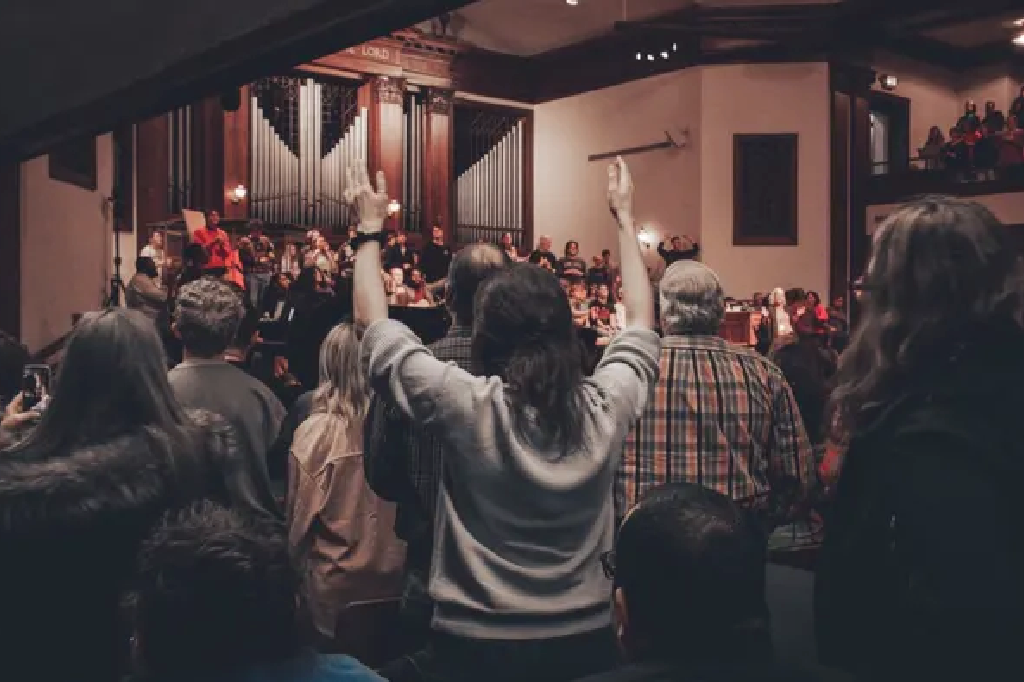Class in Session: Teen’s Mental Health
I’ve often said to my team that research is revelatory. Research removes assumptions and reveals what’s truly going on beneath the surface. As children and teens in Broward County and around the country settle back into their school routines, I’m reminded of the potential of the next generation – their ability to be creative and their zeal for causes that are making a difference. Generation Z, today’s teenagers, have grown up with technology in hand, and it’s changing the way they see and interact with the world. Behind the TikTok posts and the lighthearted YouTube videos they create something harmful lurks behind many of their crafted facades. We can see through research just how much the next generation is struggling with their mental health.
At OneHope, we completed a deep-dive research initiative into the lives of teenagers around the world, with the goal to learn more about their faith, influences, and struggles. When Global Youth Culture research was completed, I sat in my office looking over the report, and I was awestruck at this glimpse into the next generation’s reality. It’s overwhelmingly clear that teenagers today need our help. Look at their response when asked about their experiences in the last three months:
-
2 in 3 reported high anxiety
-
3 in 4 reported feelings of loneliness
-
60% reported experiencing depression
-
35% reported having suicidal thoughts – the highest of any of the 20 countries surveyed
My stomach dropped, as I’m sure yours just took a tumble also. Sadly, it’s not just OneHope’s research that is pointing to the decline of mental health in young people. According to the Center for Disease Control, between 2007 and 2018, the national suicide rate among people aged 10-24 increased by 57%.1 Pew Research states 7 in 10 teens see anxiety and depression as major problems among their peers.2
Research is revelatory, but it must lead to action if we’re going to see a change.
Many individuals in Generation Z have sent up a metaphorical flare signal saying, ‘Help! I can’t navigate this myself, and I need you to act.’
As parents, grandparents, educators, and caring adults, what can we do to help teenagers become the healthiest versions of themselves? The OneHope research team presented this question to a licensed counselor who gave practical advice we can all use to connect with teens and help navigate mental health concerns:
-
Make the first move – Teens battling anxiety, depression, and more often have a difficult time opening up. Be the first to begin the conversation.
-
Ask good questions based on observations – Ask questions out of compassion, not as in interrogator. Use open-ended questions.
-
Offer generous empathy – The quickest way to shut someone down is to ask them to share vulnerably and then minimize their concerns. Make every effort to get inside their world and understand why certain things are a big deal to them.
-
Help them understand themselves – Educate yourself so you can educate the teen. Then you can offer this information to help the teen evaluate their own experience.
-
Be a thermostat, not a thermometer – Caring communication is disrupted when we react out of our own fears rather than responding to teens out of compassion. As you take responsibility to manage your own fears, you will be able to more compassionately respond to your teen.
This is just a glimpse into the free downloadable Crisis Mode: three things you can do to help your teen with mental health. Access your copy through the United States report here or scan the QR code below.
You’re not alone in this journey. As you walk with your teen, you may recognize that they need more help that you’re able to give, and that’s okay. Perhaps the best thing you can do is to connect the teen in your life with a therapist, who is equipped with tools to help teens navigate anxiety, depression, and suicidal tendencies. The World Health Organization states that half of all mental health conditions start by 14 years of age, but most cases go undetected and untreated.3 Let’s begin to change the trend, and help young people navigate their adolescent years as healthy individuals. As you see the school buses driving around your neighborhood, think and pray for the next generation and for their caregivers.
1 Curtin, Sally. 2020. State Suicide Rates Among Adolescents and Young Adults Aged 10-12: United States, 200-2018. National Vital Statistics Reports, Vol 69, No. 11. Accessed August 16, 2021. https://www.cdc.gov/nchs/data/nvsr/nvsr69/NVSR-69-11-508.pdf
2 Horowitz, Juliana Menasce and Graf, Nikki. Most U.S Teens See Anxiety and Depression as a Major Problem Among Their Peers. Pew Research Center. Accessed August 16, 2021. https://www.pewresearch.org/social-trends/2019/02/20/most-u-s-teens-see-anxiety-and-depression-as-a-major-problem-among-their-peers/
3 World Health Organization. 2020. Accessed August 16, 2021. https://www.who.int/news-room/fact-sheets/detail/adolescent-mental-health




2 Comments
Thank you for this
Very resourceful information
Thanks for all the information Sir. It is a fact that research is revelatory. OneHope and several Organizations have come a long way by the grace of God using research as a tool for discovery and/ or revelation of what transpires beneath the surface. This is very helpful, Sir.
In addition to research, I perceive it is necessary for a Christian Organization as OneHope to have Prophetic voices or Prophets and Seers who can tell leadership about the mind of the Lord as an when the need comes.
David, the man after God’s heart knew the importance of the prophetic voices and/or Prophets and Seers. Therefore he made room for them in Israel as a nation, during his reign as a King. It took Prophets to correct King David when he went off the will of God without realizing it, Sir. The ministry of Prophets and Seers is vital for the body of Christ today be it adults or children and youth, Sir. The Lord be with you and bless you richly, Sir. Shalom ❣️!!!